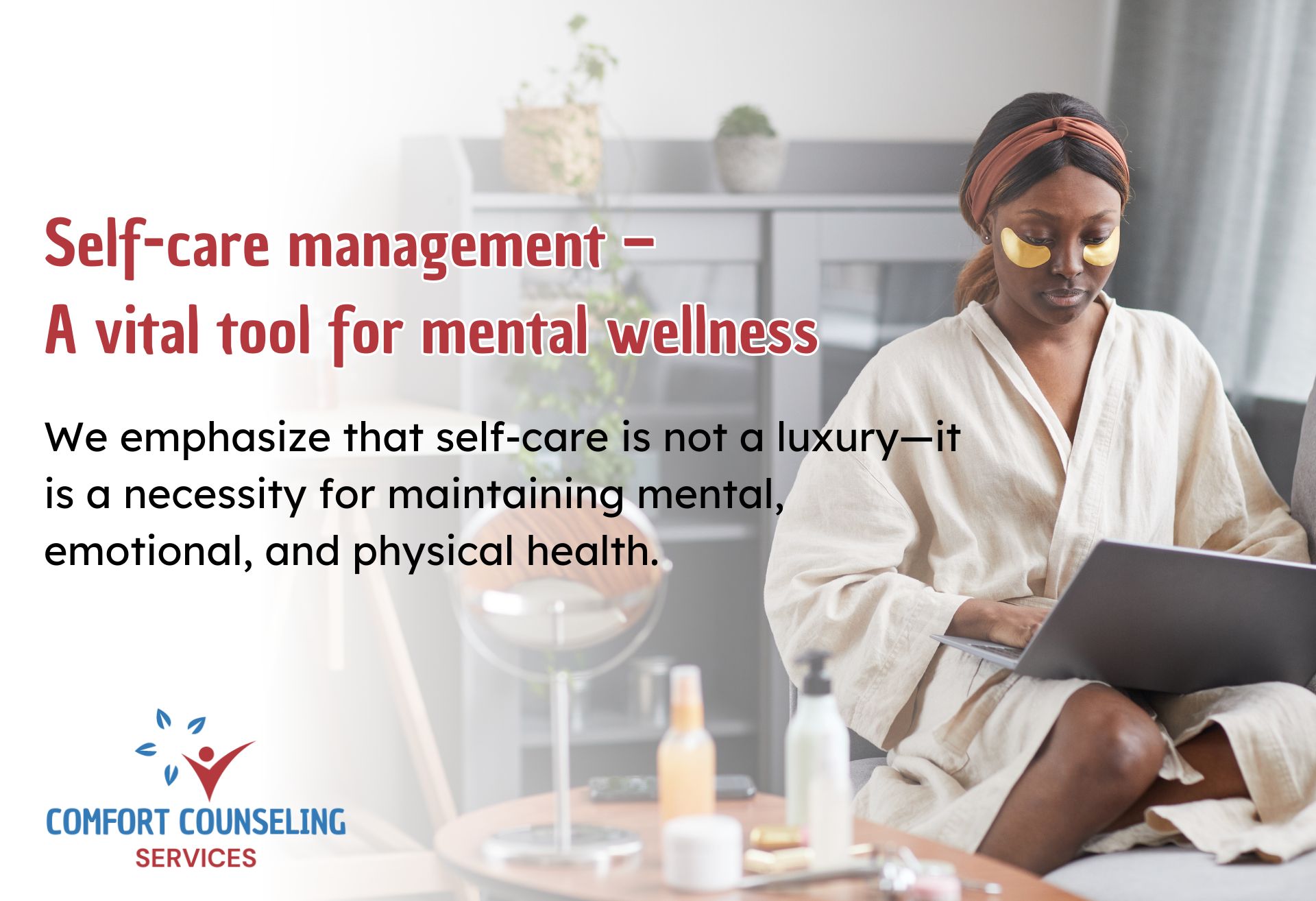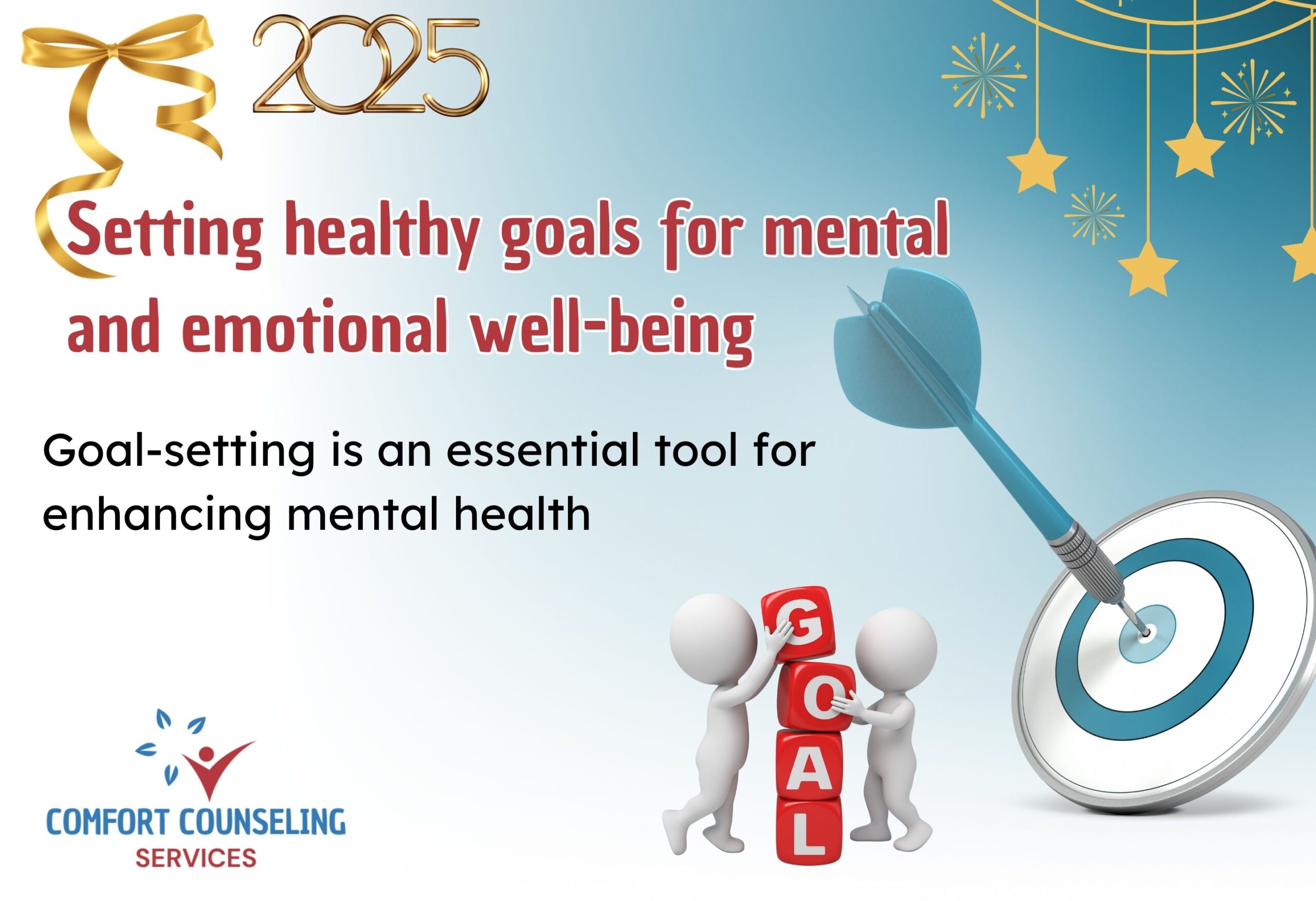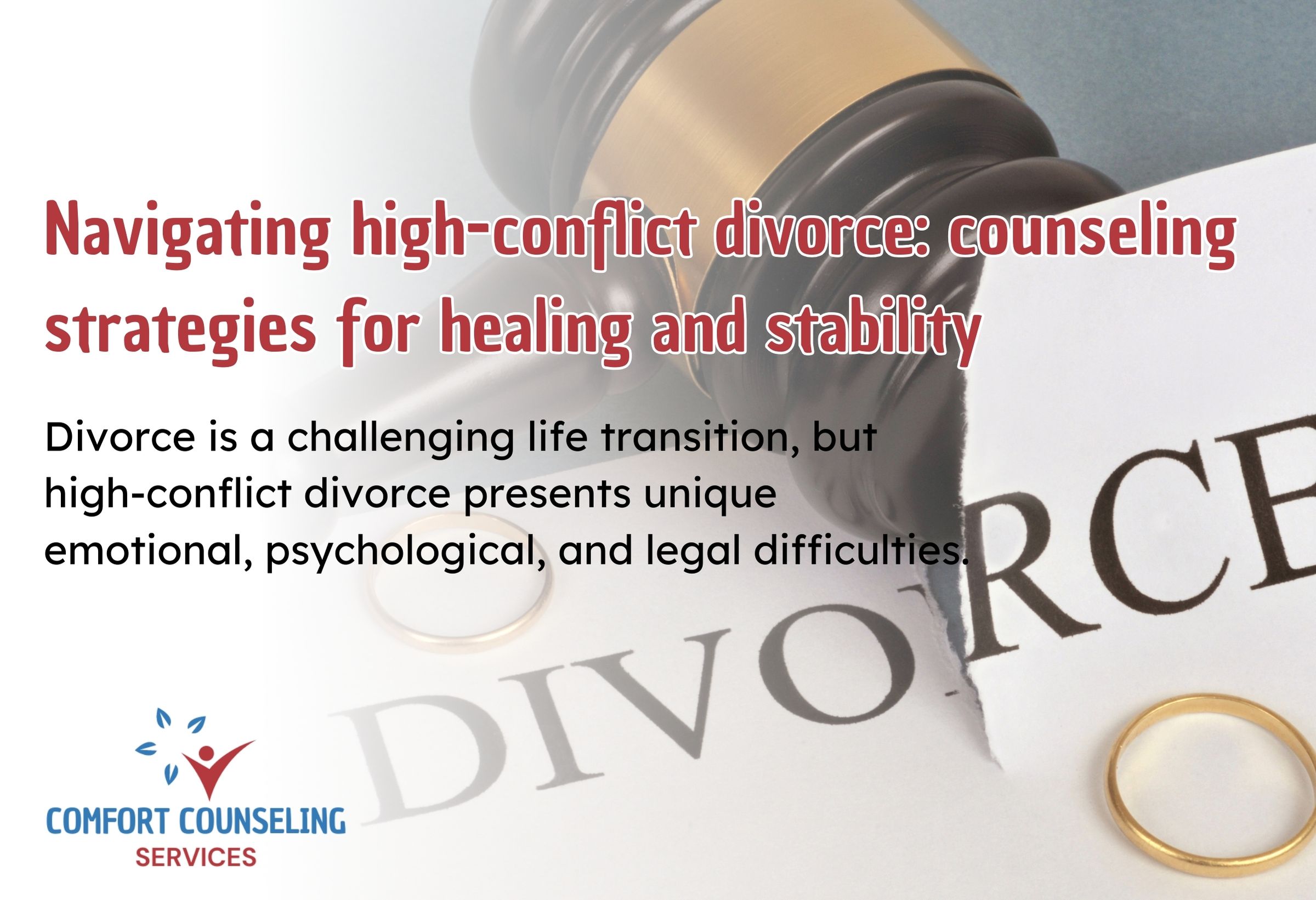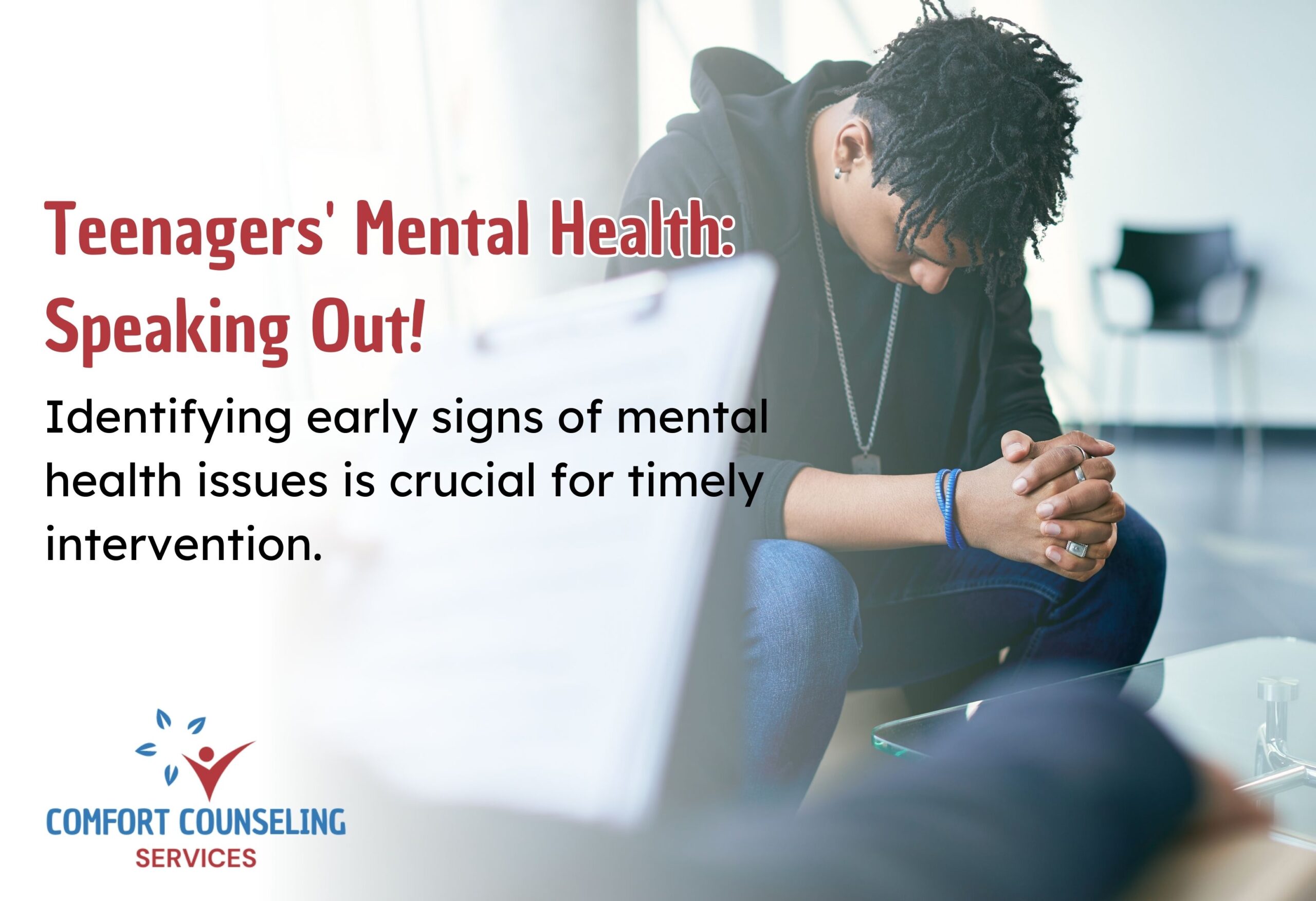In today’s fast-paced world, the concept of self-care has become more important than ever. April, a month associated with renewal and growth, offers the perfect opportunity to evaluate and strengthen our self-care practices. At Comfort Counseling Services, we emphasize that self-care is not a luxury—it is a necessity for maintaining mental, emotional, and physical health.
Understanding Self-Care
According to the World Health Organization (WHO), self-care is “the ability of individuals, families, and communities to promote health, prevent disease, maintain health and to cope with illness and disability with or without the support of a healthcare provider” (WHO, 2022). This broad definition shows that self-care encompasses more than pampering—it includes sleep hygiene, nutrition, emotional regulation, social connection and spiritual growth.
Why self-care matters
Neglecting self-care can lead to burnout, stress, anxiety, and depression. A 2021 survey by the American Psychological Association (APA) revealed that 79% of adults reported stress-related symptoms, such as headaches, fatigue, and insomnia, due to lack of balance between work and personal time (APA, 2021).
Self-care helps:
- Reduce symptoms of mental illness
- Improve productivity and focus
- Enhance relationships
- Build resilience and emotional regulation (Neff & Germer, 2018)
Dimensions of self-care
Effective self-care management should address the following areas:
- Physical self-care: Includes adequate sleep, nutrition, exercise, and medical check-ups. The CDC recommends adults get at least 7 hours of sleep per night and 150 minutes of moderate physical activity per week (CDC, 2020).
- Emotional self-care: Involves understanding and expressing your feelings, journaling, counselling, and stress management techniques like mindfulness (Kabat-Zinn, 2015).
- Social self-care: Maintaining meaningful connections with others. Loneliness increases the risk of early mortality by 26% (Holt-Lunstad et al., 2015).
- Mental/intellectual self-care: Engaging in stimulating activities like reading, puzzles, learning new skills, or limiting screen time.
- Spiritual self-care: Practicing faith, prayer, meditation, or activities that align with personal values and purpose.
- Professional self-care: Setting work boundaries, taking regular breaks, and seeking peer support.
Practical self-care strategies
Here are manageable and affordable ways to implement self-care:
- Create a daily routine that includes breaks and reflection time.
- Use mindfulness apps like Insight Timer or Headspace.
- Journal daily to express thoughts and reduce anxiety.
- Engage in gratitude practices each morning or evening.
- Limit screen time, especially before bed.
- Prioritize tasks using tools like the Eisenhower Matrix.
- Reach out to a counselor or support group when overwhelmed.
The role of counseling in self-care
Sometimes, self-care requires professional support. Counselors help identify emotional blocks, offer coping tools and foster accountability. At Comfort Counseling Services, we provide personalized counseling plans that integrate faith-based and evidence-based approaches to self-care management.
Whether you’re struggling with burnout, family stress or personal trauma, seeking professional guidance is a form of self-care in itself.
Resources for further support:
Books:
Self-compassion by Dr. Kristin Neff
The gifts of imperfection by Brené Brown
Podcasts:
The Mindful Kind by Rachael Kable
Therapy Chat by Laura Reagan
Websites:
Mental Health America (www.mhanational.org)
Psychology Today (www.psychologytoday.com)
Final reflection
Self-care is a lifelong journey, not a destination. It requires consistency, intention, and sometimes, a community of support. This April, take time to listen to your body, mind, and soul. As 1 Corinthians 6:19 reminds us, “Do you not know that your bodies are temples of the Holy Spirit…?” Caring for yourself honours not only your well-being but also your Creator.
Let this month mark a renewed commitment to self-care management—for the sake of your health, your relationships, and your purpose.



